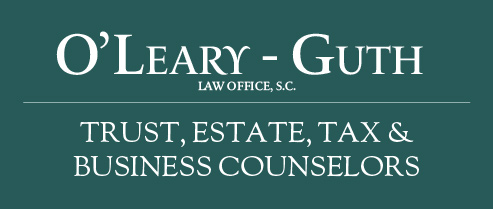Coming Soon: More Business Filing Requirements
Posted: April 26, 2022
By Attorney Maureen L. O'Leary
The Corporate Transparency Act was enacted by Congress on January 1, 2021. The Act authorized the Financial Crimes Enforcement Network (“FinCEN”) to better track businesses in a broad attempt to prevent anonymous shell corporations and crack down on criminal enterprises that engage in money laundering, terrorism, drugs, etc.
On December 7, 2021 FinCEN issued proposed regulations that outline their new requirements. FinCEN has not yet announced an effective date, but the rules are widely expected to take effect before the end of 2022. This blog discusses the requirements of the proposed regulations in their current form, which may change prior to enactment.
What is a “Reporting Company?”
When the regulations go into effect, all “reporting companies” will be required to file with FinCEN identifying information about each of their “beneficial owners” and “company applicants”.
The term "reporting company" includes a corporation, limited liability company, or other entity that was created by the filing of an organizational document with the Secretary of State or similar office.
What is a “Beneficial Owner”?
A “beneficial owner” is defined as any individual who has at least 25% ownership in the company or who exercises “substantial control” over the company.
A reporting company must provide all the following information for each beneficial owner:
- Full legal name of the individual.
- Date of birth for the individual.
- Residential street address that the individual uses for tax residency purposes.
- A unique identifying number from certain government documents issued to the individual.
- An image of the document that provided the unique identifying number that includes a photograph of the individual.
There are many unanswered questions regarding who is a person with direct or indirect “substantial control” over a reporting company, especially when the reporting company might be owned by one or more trusts. The American College of Trusts and Estates Counsel, of which Andy Willms and I are members, has submitted comments to FinCEN regarding numerous issues surrounding these proposed regulations, particularly when trusts are involved. Hopefully many of these issues will be addressed before final regulations are enacted.
What is a “Company Applicant”?
Perhaps even more challenging, each reporting company must also provide the same level of detailed information for each “company applicant.”
A company applicant is the person who filed the company’s organization documents with the secretary of state or similar office. The proposed regulations broadly define this to include all of the following people: (1) the person that made the decision to file the formation or registration document, (2) any attorney, paralegal, or legal clerk who sent the document for filing, and (3) any employee of a formation agent that filed the document by mail or across the counter.
Again, unanswered questions surround the practical implementation of these reporting requirements. For example, if your company was organized by someone who no longer works for you, it may be difficult to obtain a photo identification or even a current address for the individual. It is unclear how such a situation should be handled.
Please Tell Me There Are Exceptions
Yes, there are some exceptions, but they tend to only apply to large companies that are already highly regulated, such as large operating companies, securities issuers, banks, insurance companies and producers, brokers or dealers in securities, registered investment companies and advisers, venture capital fund advisers, accounting firms, tax exempt entities (or those assisting tax exempt entities) and special pooled investment funds.
A "large operating company" is defined as a company that employs more than 20 employees on a full-time basis in the United States, filed federal income tax returns in the prior year demonstrating more than $5,000,000 in gross receipts or sales in the aggregate, including receipts or sales from entities owned by the entity and through which the entity operates; and has an operating presence at a physical office within the United States.
There is no exception for simply being a very small company, like that LLC you organized for a small hobby business, or even an inactive company you organized just so no one else would snatch up the name in case you needed it someday. All those companies need to report too, so make sure you have a comprehensive list of all your entities.
Because the regulations only apply to entities that are formed by filing documents with the Secretary of State or similar departments, sole proprietorships and common law partnerships are not subject to FinCEN’s filing requirement. As a result, these business structures may increase in popularity in the near future, even though they can lack the asset protection benefits and other formalities often desired of a business and lead to succession planning challenges.
When to File?
Once the final regulations take effect, all reporting companies in existence at that time must file their initial report with FinCEN within one year following the rule effective date.
New reporting companies created after the rule effective date must file their initial report with FinCEN within 14 calendar days of formation.
In addition, after filing, you must report to FinCEN any changes to the filed information (such as a company ownership change or an address change) within 30 days of learning of the change.
FinCEN may extend civil and criminal penalties to any person failing to comply. Civil penalties are expected to be $500 per day (capped at $10,000). And, before you decide to risk the $10,000 and skip filing, take note that criminal penalties can include up to two years imprisonment.
Conclusion
We will alert our clients if and when the regulations are enacted. In the meantime, we recommend maintaining comprehensive corporate records for all of your business entities so you are organized and can move quickly when the clock starts ticking. We will also be here to provide assistance with filing requirements when the time comes. Please let us know if you have any questions.
Schedule an appointment with us today.
Meet with a knowledgeable attorney who specializes in your area of law.
1251 W. Glen Oaks Lane, Mequon, WI 53092
F: (262) 238-6999

